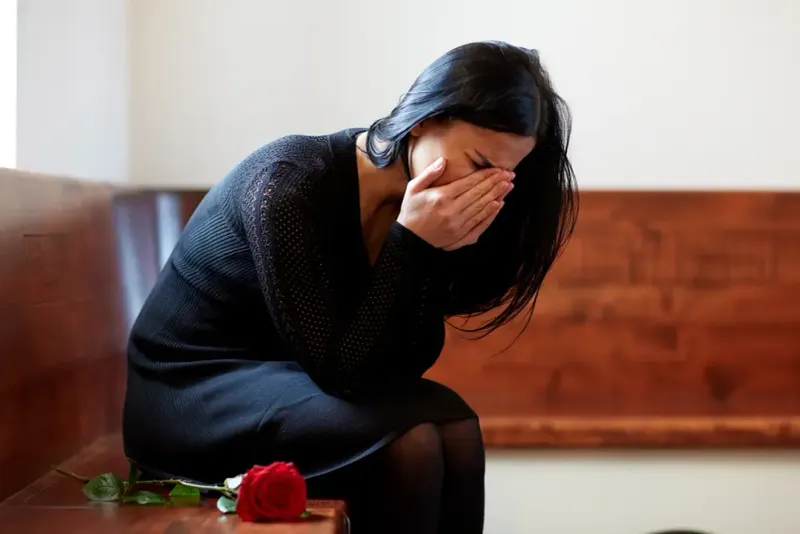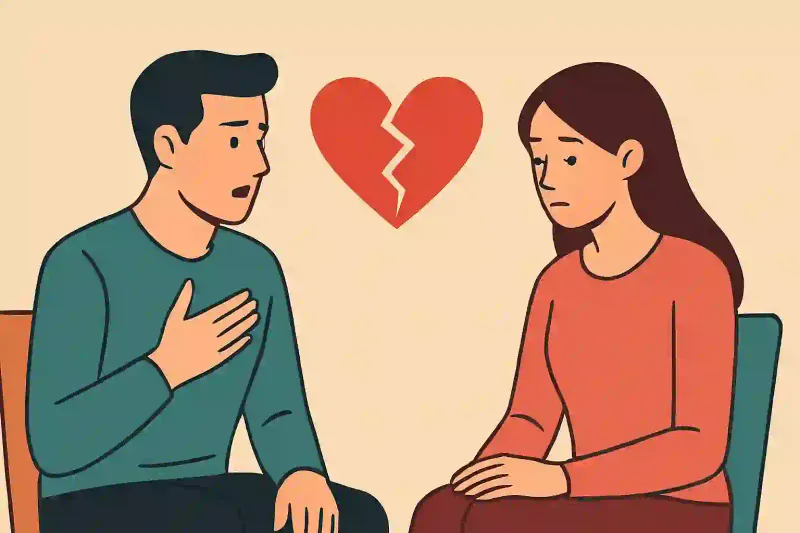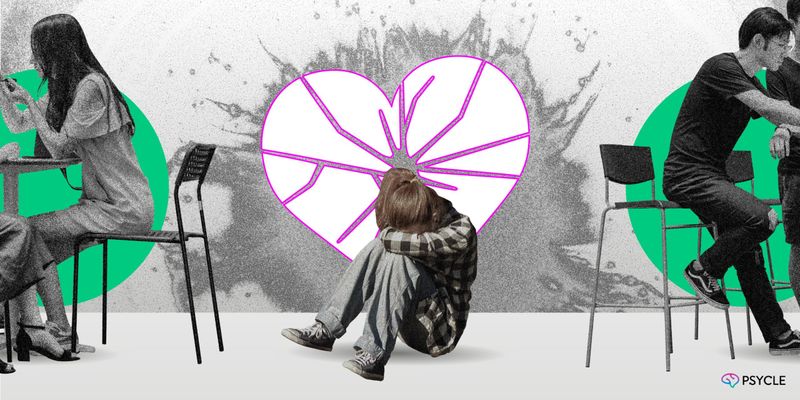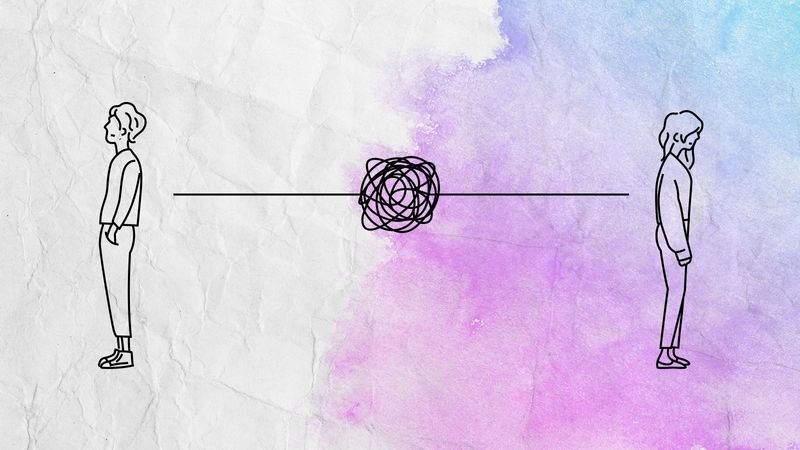The Great Divide: 18 Different Ways Men And Women Navigate Breakups
Breaking up is never easy, but the way men and women navigate the end of a relationship can be strikingly different. While these differences are not universal, they highlight distinct patterns in emotional processing, coping strategies, and personal growth.
We explore 18 contrasting ways men and women manage breakups, offering insight into the emotional landscapes that shape their journeys toward healing.
1. Women often grieve early—men delay the pain

For many women, the grieving process begins almost immediately after a breakup. They allow themselves to feel the pain, cry, and talk through their emotions with friends. This early grieving can lead to faster emotional recovery, as they actively process the loss.
Men, however, often delay confronting the emotional pain. Initially, they might appear unaffected, maintaining a stoic exterior. This delay can stem from societal expectations that discourage men from showing vulnerability.
Unfortunately, this postponement can result in prolonged emotional turmoil. Without addressing their feelings head-on, men may struggle to fully heal, prolonging the impact of the breakup.
2. Men tend to distract, women often reflect

In the aftermath of a breakup, distraction often becomes a primary coping mechanism for men. They may immerse themselves in work, sports, or new hobbies to divert attention from their emotional pain. This approach provides temporary relief but can delay genuine healing.
In contrast, women frequently choose reflection as a means of coping. They revisit the relationship’s highs and lows, seeking to understand and learn from the experience. By reflecting, they gain insights into their emotional needs and future relationship goals.
This reflective process, while painful, often fosters personal growth and prepares women for healthier relationships in the future.
3. Women reach out, men pull away

After a breakup, women typically reach out for support, leaning on friends and family to navigate their emotions. This external support system provides comfort and validation, facilitating their healing journey.
Conversely, men often pull away, choosing solitude over social interaction. This withdrawal can be a protective mechanism, allowing them to avoid vulnerability and emotional discomfort.
While solitude offers men space to process their feelings, it can also lead to isolation and prolonged emotional distress. The contrasting approaches highlight different needs for connection and introspection during the healing process.
4. Men often miss the comfort, women miss the connection

Post-breakup, men frequently find themselves missing the comfort and routine a relationship provides. They yearn for the physical presence and shared experiences that brought them solace.
Women, on the other hand, often miss the emotional connection. The loss of shared conversations, understanding, and emotional intimacy can leave a significant void. This sense of loss can trigger deep reflection and emotional processing.
Both genders grapple with the absence of different aspects, revealing how comfort and connection play pivotal roles in their emotional landscapes. Understanding these differences can foster empathy and acceptance in the healing process.
5. Women talk it out, men shut it down

Verbal expression often plays a crucial role for women navigating a breakup. They find solace in discussing their feelings, whether with friends, family, or therapists. Talking allows them to process emotions and gain perspective.
Men, however, might shut down emotionally, avoiding conversations about the breakup. This silence can be a defense mechanism, protecting them from further vulnerability.
While silence offers temporary respite, it can also hinder emotional healing. Engaging in open dialogue can be a powerful tool for both men and women, fostering understanding and emotional release.
6. Men move on fast, but not always forward

The perception that men move on quickly after a breakup can often be misleading. While they may start dating sooner, this doesn’t necessarily equate to emotional progress. Instead, it can serve as a distraction from unresolved feelings.
Women, in contrast, might take longer to enter new relationships, focusing first on emotional healing and self-discovery. This deliberate approach can lead to healthier future partnerships.
Fast-moving men risk repeating past mistakes, while reflective women often emerge more self-aware and emotionally resilient. These different timelines highlight the varied paths to emotional recovery.
7. Women rethink everything—men avoid it

Following a breakup, women often engage in deep introspection, re-evaluating their choices, values, and future aspirations. This period of self-reflection allows them to learn from the past and make informed decisions going forward.
Men, however, might avoid such introspection, focusing instead on immediate distractions. By steering clear of deep reflection, they sometimes miss opportunities for personal growth and self-improvement.
The contrasting approaches reveal how introspection and avoidance shape each gender’s journey toward healing. Women’s willingness to rethink everything can lead to transformative changes, while men’s avoidance might delay meaningful progress.
8. Men struggle in silence, women vent to heal

Men often endure emotional struggles in silence after a breakup, internalizing their pain without outward expression. This quiet suffering can stem from societal norms that discourage vulnerability.
Conversely, women frequently vent their emotions to heal, finding relief in sharing their experiences with trusted friends or family. This open communication facilitates emotional processing and provides a sense of community support.
While silence offers men personal space, it can also isolate them from potential support systems. Women’s tendency to express emotions openly promotes healing and understanding, highlighting divergent paths to recovery.
9. Women often evolve, men often escape

Breakups often serve as catalysts for personal evolution for women. They seize the opportunity to grow, exploring new interests and setting personal goals. This proactive approach fosters self-improvement and resilience.
Men, however, may choose to escape, seeking adventure or distraction to avoid confronting emotional pain. This escapism, while temporarily liberating, can hinder long-term emotional growth.
Women’s inclination to evolve contrasts with men’s tendency to escape, showcasing different coping mechanisms. Embracing change can lead to profound personal transformation, while escapism might delay meaningful healing.
10. Men might seek control, women seek clarity

After a breakup, men might seek to regain control over their lives by focusing on structure and routine. This quest for control can provide a sense of stability amid emotional turmoil.
Women, on the other hand, often seek clarity, turning inward to understand their emotions and future desires. This introspective journey aids in redefining priorities and aspirations.
The contrasting desires for control and clarity underscore differing emotional needs. Men’s focus on control can bring temporary relief, while women’s pursuit of clarity often leads to enduring emotional insight and growth.
11. Women face their part, men blame or bury

Post-breakup, women frequently face their role in the relationship’s dynamics, acknowledging their part in its end. This self-awareness promotes personal accountability and growth.
Men, however, might resort to blame or bury their feelings, avoiding reflection on their role. This defensive stance can prevent them from learning valuable lessons from the past.
By facing their contributions, women lay the groundwork for healthier future relationships. Meanwhile, men’s reluctance to confront their part might hinder emotional development, emphasizing the importance of self-reflection in healing.
12. Men fear being alone, women fear repeating patterns

The fear of loneliness often haunts men post-breakup, as they grapple with the absence of companionship. This fear can drive them to seek new relationships prematurely, hoping to fill the void.
Women, conversely, may fear repeating unhealthy patterns, prompting them to evaluate past relationships and identify red flags. This reflective approach helps them break cycles and pursue healthier futures.
The contrasting fears highlight different emotional challenges: men’s fear of solitude versus women’s concern for growth and change. Understanding these fears can enhance empathy and support during the healing process.
13. Women seek growth, men seek replacement

Breakups often inspire women to seek personal growth, embracing change and self-discovery. This quest for growth fosters resilience and prepares them for future relationships.
Men, however, might seek immediate replacement, jumping into new relationships to fill the emotional void. This pursuit of replacement can distract from necessary self-reflection and healing.
The differing priorities of growth versus replacement highlight distinct emotional needs. Women’s focus on growth often leads to lasting fulfillment, while men’s search for replacement might delay true emotional recovery.
14. Men romanticize what they didn’t fix

Post-breakup, men often romanticize past relationships, focusing on idealized memories rather than unresolved issues. This tendency to idealize can prevent them from acknowledging the relationship’s flaws.
By clinging to a romanticized past, men may struggle to move forward, missing the opportunity for closure and personal growth. Women, in contrast, might confront unresolved issues, allowing them to let go and heal.
The contrasting approaches to the past reveal different paths to closure. Confronting reality empowers women to move on, while romanticization might leave men stuck in unproductive nostalgia.
15. Women close doors, men leave them cracked

Women often strive for closure after a breakup, seeking to close doors both emotionally and physically. This decisive action facilitates healing and allows them to embrace new beginnings.
Men, however, might leave doors slightly open, holding onto the possibility of reconciliation. This reluctance to fully close doors can stem from lingering emotions and uncertainty about the future.
The differing approaches to closure underscore the importance of decisiveness in emotional healing. Women’s clarity in closing doors empowers them to move on, while men’s hesitation might prolong emotional attachment.
16. Men regret silently, women release intentionally

Silent regret often accompanies men after a breakup, as they reflect on what might have been without expressing their feelings. This internalized regret can lead to prolonged emotional distress.
Women, in contrast, often engage in intentional release, consciously letting go of past attachments. This active release can include symbolic acts, like burning letters or donating gifts, to facilitate closure.
The contrasting methods of handling regret highlight divergent paths to healing. Women’s intentional release fosters emotional freedom, while men’s silent regret might hinder their ability to move on.
17. Women rebuild slowly, men rush the restart

After a breakup, women often take a slow and deliberate approach to rebuilding their lives. They focus on self-care, personal growth, and establishing new routines. This gradual process ensures lasting recovery.
Men, however, might rush into a restart, eager to establish a semblance of normalcy. This haste can lead to superficial changes that lack depth and lasting impact.
The differing paces of rebuilding highlight varied approaches to recovery. Women’s patient rebuilding fosters genuine change, while men’s rushed restart might lead to unfulfilled emotional needs and repeated patterns.
18. Men often come back too late—women don’t

The notion of returning to a past relationship is often romanticized by men, who might revisit old flames in hopes of rekindling lost connections. However, this return often happens when it’s too late, as the emotional gap has widened significantly.
Women, conversely, tend to move forward decisively, rarely looking back once they’ve committed to healing. This forward-focused approach reflects a commitment to personal growth and emotional well-being.
The differing tendencies to revisit or move forward highlight varying emotional strategies. Women’s firm steps away from the past ensure continued growth, while men’s late returns may lead to unresolved emotions.

